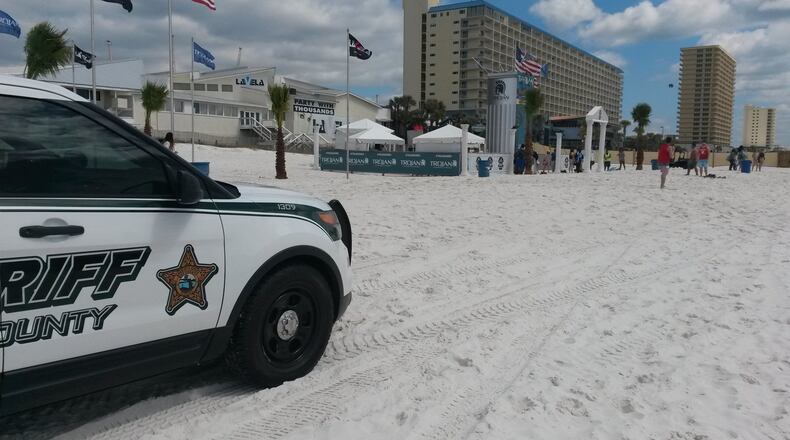The police chief of a Florida beach town is blaming high school students, including many from Georgia, for causing mayhem this spring break —with their parents “nowhere to be seen.”
Panama City Beach police Chief J.R. Talamantez told The Atlanta Journal-Constitution this week that many of the Georgia teenagers his officers have arrested this spring break season are between 14 and 17 years old.
He said he didn’t have arrest numbers yet but said police are dealing with an array of bad behavior and illegal activity. Many of the alleged troublemakers are coming from nearby high-population areas, such as metro Atlanta, where major school districts are on spring break this week. For example, he said, a Tuesday night crowd of about 2,000 partying kids threw items at officers trying to manage the gathering.
“They’re using drugs, they’re getting in fistfights, they’re throwing things at our police officers,” he said. “We’re just having to arrest kid after kid after kid for a situation that their parents should have never let them put themselves in in the first place.”
Many of Georgia’s largest public school districts took off for spring break this week, including Atlanta, Clayton, Cobb, DeKalb, Fulton and Gwinnett. Combined, those school systems enroll more than 560,000 students across all grades.
Other popular destinations have not reported an influx of teens or arrests. That includes Miami Beach and Fort Lauderdale, which both implemented strict rules this spring break to deter rowdy behavior and are a much farther drive from Atlanta than the Florida Panhandle.
A spokesperson for Fort Lauderdale’s police department said the city had only “minor isolated incidents involving either locals or college spring breakers, mostly from the Midwest.” Out of 39 arrests in March, just one was a juvenile, officials said.
A Miami Beach spokesperson said their viral campaign to crack down on college spring breakers led to “a safe and successful spring break season.”
Clearwater Beach doesn’t take many additional precautions for spring break beyond a higher police presence. The city has had crowds, but without any disorder thus far, police spokesman Rob Shaw told the AJC.
“We don’t ever wish to be known as a rowdy hot spot for spring break,” he added.
Panama City Beach’s proximity to Atlanta makes it a light road trip for high school students. The trip is less than 300 miles, or a roughly five-hour drive. The city is commonly referred to as the “spring break capital of the world.”
When college spring breakers were in town during March, the city enacted additional measures to deter mayhem, including nightly beach closures in some areas. Officers can also implement higher fines for certain offenses in “special event zones.” Beach curfews are in place, and police imposed an 8 p.m. curfew for unaccompanied minors at a popular shopping destination, the chief said.
Panama City Beach experienced a similar wave of young spring breakers from Georgia last year, too. Adults book condos for them to stay in and leave the teens without supervision in violation of many condo association rules, Talamantez said.
“They’re staying in these $300,000-$400,000 condos that are being rented at these beach resorts with no parent around,” he said. “Nowhere to be seen.”
Teens have been arrested for gun possession and violence-related charges, he said, and in those cases, minors will be charged as adults in Florida.
“If you’re a parent, and you have a kid in Panama City Beach for spring break, I would strongly suggest you call them home now,” Talamantez said, “before I have to call you and tell you I put them in jail.”
About the Author
Keep Reading
The Latest
Featured




